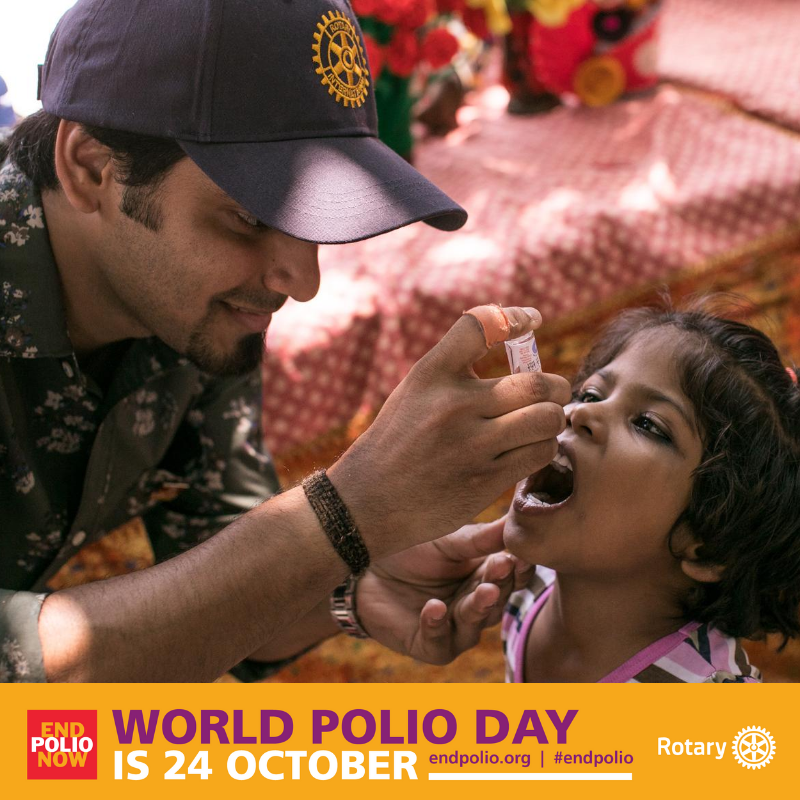


As World Polio Day 2024 approaches, we take a moment to celebrate the progress made in the fight against polio and renew our commitment to eradicating this disease. With a decrease of over 99% in polio cases since the launch of the Global Polio Eradication Initiative, the day highlights the importance of vaccinations and the need to reach every child, especially in regions where polio still poses a threat. This important occasion also recognizes the contributions of healthcare workers, scientists, and organizations in the fight against polio while reinforcing the importance of strengthening health systems for overall health improvement.
World Polio Day: A Triumphant Fight Against a Crippling Disease
Background
Polio, a highly infectious viral disease, once crippled or paralyzed millions of children worldwide. However, thanks to the tireless efforts of healthcare workers, scientists, and global initiatives, polio is on the verge of eradication.
World Polio Day, observed annually on October 24, serves as a testament to this remarkable progress. It was established in 1988 by Rotary International to commemorate the birth of Jonas Salk, the inventor of the polio vaccine.
Progress and Challenges
Since the launch of the Global Polio Eradication Initiative in 1988, polio cases have plummeted by over 99%. Wild poliovirus type 2 (WPV2) has been eradicated, and WPV3 is on the brink of extinction.
However, pockets of resistance remain in certain regions, particularly in Afghanistan, Pakistan, and parts of Africa. These areas face challenges such as poor infrastructure, conflict, and vaccine hesitancy.
Importance of Vaccination
Vaccinations have played a pivotal role in the fight against polio. The oral polio vaccine (OPV) provides lifelong immunity with just a few doses. Additionally, the inactivated polio vaccine (IPV) offers enhanced protection against infection.
It is crucial to reach every child with these vaccines, especially in high-risk areas. Mass vaccination campaigns, routine immunization, and targeted health programs are essential for achieving global eradication.
Top 5 FAQs and Answers
Q: How is polio transmitted?
Q: What are the symptoms of polio?
Q: Is polio a threat in my country?
Q: Can polio be cured?
Q: What can I do to help eradicate polio?
Conclusion
World Polio Day stands as a testament to the tireless efforts of those who have dedicated their lives to eradicating polio. While progress has been remarkable, the fight is not over. By continuing to invest in vaccination, strengthening health systems, and raising awareness, we can achieve a polio-free world for all.

A recent consumer study has found multiple brands of soft contact lenses in the U.S. to contain "forever chemicals" that can be harmful to both the body and the environment. The study, conducted by the nonprofit organization Environmental Health Sciences, tested 18 varieties of popular contact lenses and found all of them to contain markers for PFAS. Brands such as Acuvue, Alcon, and CooperVision were among the list of affected products. This news serves as a cautionary lesson on the potential risks of overusing contact lenses.

On the birth anniversary of Dr. APJ Abdul Kalam, the ‘Missile Man’ of India, tributes pour in on social media celebrating his life, vision and impact. A visionary scientist, inspiring leader and true patriot, Dr. Kalam's humility, compassion and constant interaction with students continue to inspire generations. His tireless efforts in defense, science and youth empowerment have strengthened India's path towards self-reliance and his legacy continues to motivate young minds to dream big and work hard for the nation.

Recent studies have found that extreme heat, particularly when combined with high humidity, can have a significant impact on mental health. A study in India showed that when wet bulb temperature exceeded 27°C, the probability of reporting severe depression increased by 0.5%, even when the temperature was slightly lower. This finding is consistent with global reviews that have linked high temperatures to mood disorders, increased hospital admissions for psychiatric conditions, and even elevated suicide risk. The Lancet has also published evidence that rising temperatures worldwide are a growing threat to emotional and cognitive health.

In a meeting with university officials in Udaipur, Rajasthan Governor Hari Bhau Bagde stressed the importance of incorporating India's ancient knowledge traditions into academic research. He highlighted the deep repository of knowledge in India since ancient times and urged scholars and scientists to draw upon this tradition in their work. Bagde also suggested making ancient texts available in university libraries for study and research purposes, in order to shape the intellectual abilities and love for the nation among the younger generation.

John Clarke, Michel H. Devoret, and John M. Martinis have been awarded the 2025 Nobel Prize in Physics for their pioneering research into quantum mechanical tunnelling. Their discovery has opened new possibilities for quantum technologies, and will be formally presented on December 10, the anniversary of Alfred Nobel's death. This announcement follows the tradition of recognizing transformative contributions to science, and the award carries a prestigious prize of 11 million Swedish kronor.

The US-Japanese trio of Mary E Brunkow, Fred Ramsdell, and Shimon Sakaguchi have won the 2025 Nobel Prize in physiology or medicine “for their discoveries concerning peripheral immune tolerance". Through their research, they have shown how the immune system is kept in check and why serious autoimmune diseases do not affect everyone. Sakaguchi found a new class of T cells, while Brunkow and Ramsdell discovered the explanation behind a specific mouse strain's vulnerability to autoimmune diseases. Together, they have significantly advanced our understanding of immunology and autoimmune diseases.

Indian astronaut Shubhanshu Shukla, who recently completed a 20-day space mission, shared his insights and experiences at the convocation ceremony of Dr. APJ Abdul Kalam Technical University. He highlighted the importance of patience, focus, and the inevitability of change in achieving success, and urged the graduating class to actively contribute to shaping a fearless and ambitious India.

The Regional Meteorological Centre (RMC) in Chennai has issued a weather alert for parts of Tamil Nadu, with thunderstorms and light to moderate rainfall expected on Saturday. The alert was issued due to the strengthening of a cyclonic circulation in the Bay of Bengal, which is likely to intensify and form a low-pressure area. The system is expected to affect Tamil Nadu, Puducherry, and Karaikal, with some areas experiencing heavy rainfall and gusty winds. The public is advised to stay updated and take precautions, especially in hilly and western districts.

As a step towards advancing India's deep-sea research capabilities, the Union Science Minister announced a landmark contract with the International Seabed Authority to conduct mineral exploration in the Indian Ocean for the next 15 years. This move will not only help India in expanding its scientific knowledge about the deep sea but also has the potential to strengthen its position as a leading player in the international seabed mining industry.

President Trump has signed a proclamation that makes significant changes to the H-1B visa program. These changes include a new $100,000 fee for employers to sponsor H-1B workers entering the US, as well as higher wage levels and priority for senior, high-paying positions. While workers currently inside the US on valid H-1B status are not directly affected, anyone traveling abroad and seeking re-entry must comply with the new requirements. The lasting impact on the flow of talent, technology, and jobs between India and the US remains uncertain.